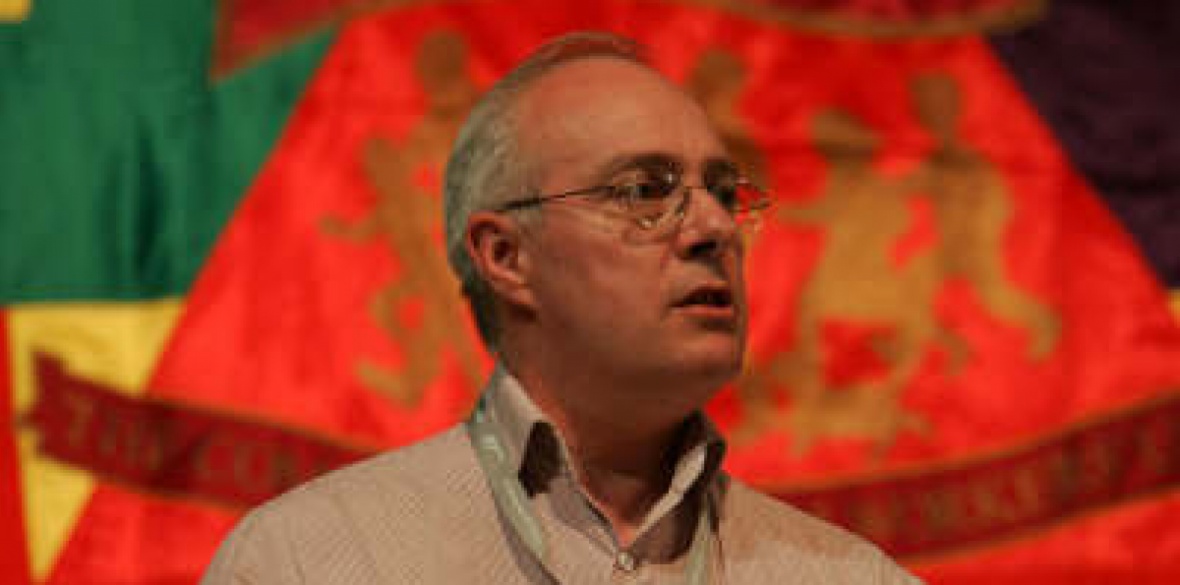This is the last article you can read this month
You can read more article this month
You can read more articles this month
Sorry your limit is up for this month
Reset on:
Please help support the Morning Star by subscribing here
WHAT do you recall about the context in which the 1988 TUC met?
The once workshop of the world had been closed down. The shock and awe of the destruction of industry and coal and their leadership unions was unprecedented in world history.
Steel, engineering, docks, shipbuilding, print — all savaged in the wanton act of vandalism of Thatcher.
For many of us this was a logical consequence of the neoliberal agenda, pioneered by Pinochet, Reagan and Thatcher, and embodied in a new way by the construction of an EU superstate dominated by the multinationals.
Indeed many argued that the origins of the EU in the European Coal and Steel Community, which sought to remove from any independent nation the capacity for independent power and industrial production, was the cause of, not the solution to our problem.
EU regional policies gave manufacturing to Germany and financial services to Britain. The spivs were on the up and 20 years later we saw the result in the 2008 deliberate crash.
And who could not forget the agony of unemployment, consistently about 10 per cent of the population of the EU. There were 12 EU members in 1988, now 28, soon to be 27. Look at the scale of unemployment that plagued the subsequent accession countries.
I forget exactly where we were in the process of anti-worker and anti-trade union legislation, but for sure even by 1988, the tactics that for example the Trico strikers employed to win equal pay for women in 1976 had become impossible.
The speed and ferocity of the attack on our productive economy, communal life, unions and social housing inevitably left some demobilised, demoralised and shell-shocked and realising that the old tactics and post-war consensus had been replaced.
Do you recall Jacques Delors’ speech?
EU bureaucrats do not have a reputation for memorable oratory, but of course the message and the reception of it were quite decisive and in my view helped to further disempower the movement in the ensuing years.
What was the message he brought?
In essence if the unions support the creation of an EU single market in 1992 milk and honey will flow, solidarity will be the name of the game, collective bargaining will prosper, the social dimension will counterbalance the tooth and claw of the market, we will have competition as well as co-operation, everyone will benefit, health and safety standards will improve. For me his advocacy of lifelong education opportunities for all workers was interesting as this was the policy and practice of my own union.
And what about the response?
Well, that was the problem. Key people who should have known better actually believed him and not only tried to force the movement to accept the single market, but later the single currency and further still, a single constitution for the EU.
I remember very vividly thinking that if any employer brought to a trade union negotiator such a bland set of half-promises without any of the detail, which of course Delors completely omitted, they would instantly reject them with the phrase, “pull the other one, mate.”
I couldn’t believe how such empty uninspiring rhetoric would strike a chord in a movement that prided itself in its cunning pragmatism and principles. It was as if people were clinging to straws in utter desperation and lack of confidence in our own power.
Delors was at least civil to us and not a skinhead like Tebbit and co. As it transpired his con-trick was much more damaging.
Some people actually believed that if the jungle got bigger it would get better and saw no doubt a few potential lucrative sinecures for themselves in the tree tops.
It is the nature of this response that plagued the movement until of course 2016 when the sleeping giant started to wake up more confidently than the unions themselves.
It is that curse of a very slavish mentality that pretends we can rely on those we don’t elect to solve our problems; and worse still, believes we can rely on a European Court of Justice for our salvation despite its blatant hard-wiring into the primacy of the rights of business.
How do you think history will look back on the speech and ’88 congress?
It does no-one any favours to see the parliament of workers duped and so easily seduced into never-never land. It would take a very very bad historian indeed to argue that even one iota of Delors’ dreams of a social Europe came true. That was just the mask they tried to put on the anarchy.
Does it have any lasting impact then?
Yes, in one dangerous sense. Some still cling to that delusion defying all reality and law, that the EU can be reformed, turn on the taps of milk and honey again and deliver free collective bargaining, thriving public services and rebuild skilled, high-tech industries through its beloved single market and customs union.
The reality for this generation in planning the next 30 years is to shed this delusion and get behind the Labour leadership and all that flows from the policies of For the Many not the Few. This can only be done outside the EU and its central pillar the single market, which has so obviously failed.
Doug Nicholls is general secretary of the General Federation of Trade Unions.

 Ben Chacko
Ben Chacko









